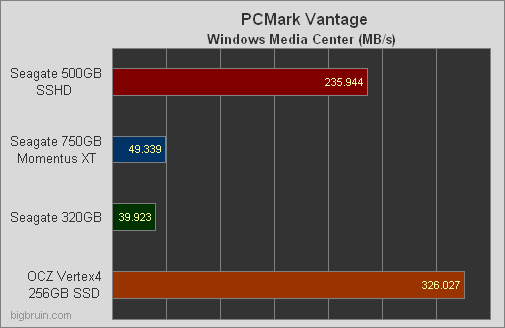Testing (continued):
PCMark Vantage:
PCMark Vantage is the last test run, and unlike the others, it appears that the Thin SSHD cached the data files as there is a big difference between the standard 5400RPM drive and the two SSHDs. PCMark provides a composite score of multiple tests, and also provides the results indvidually. PCMark is fairly close to a real world benchmark as it performs tasks that a user might do.
For the composite score, the results show that the new Thin SSHD performs better than the Momentus XT, and like all the previous tests, a true SSD greatly outperforms the hybrid drive.
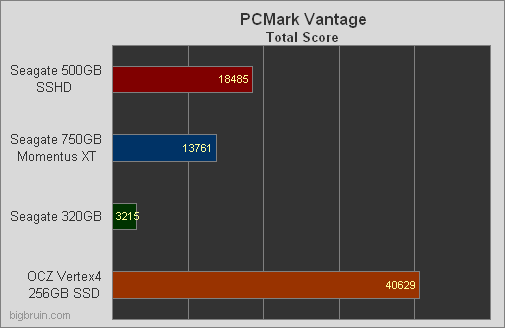
During the Windows Defender test, the Laptop Thin SSHD was much faster than the standard drive, and significantly faster than the Momentus XT. In addition, it appears to be getting much closer to SSD performance as it was closer to the OCZ Vertex 4 than the 5400RPM drive.
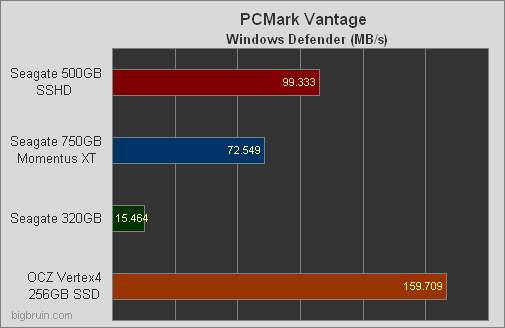
The Gaming test portion of PCMark Vantage once again shows the Seagate Laptop Thin SSHD as outperforming the Momentus XT and the 5400RPM drive. It scored closer to the SSD than the 5400RPM drive again!
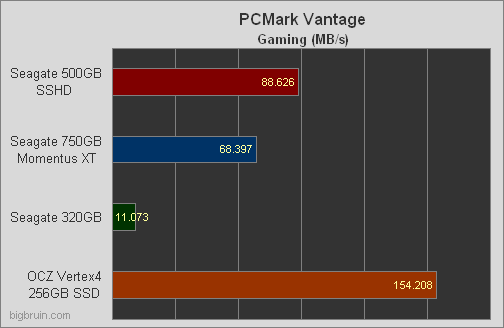
While not performing as well as the previous tests, the Application Startup portion still shows the advantage of having a SSHD over a standard 5400RPM drive.
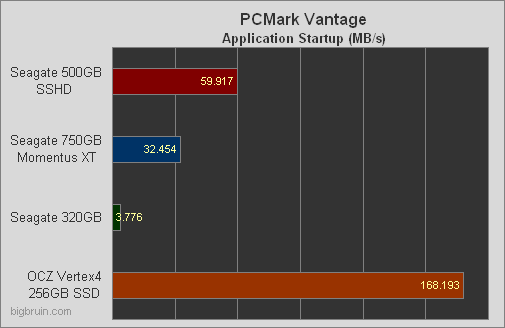
The Windows Media Center portion of the benchmark shows a huge improvement, and even gets much closer to a SSD than the previous tests. Neither of the other two drives even come close to matching the results of the SSHD.
